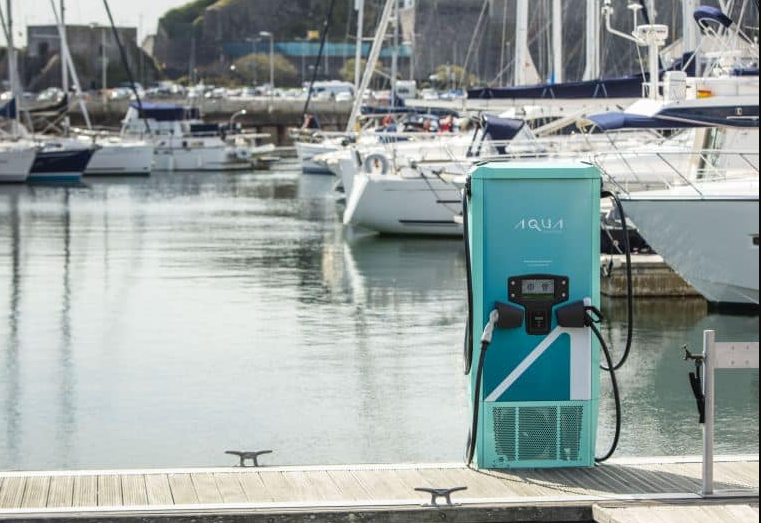The UK’s first e-marine hub of shore-side charging facilities for electric maritime vessels, created through the Marine e-Charging Living Lab (MeLL) initiative, has been unveiled in Plymouth.
The MeLL initiative is a consortium led by the University of Plymouth in partnership with Plymouth City Council, Princess Yachts Limited and Aqua Superpower.
The MeLL project has been funded by the Department for Transport and delivered in partnership with Innovate UK, as part of the Clean Maritime Demonstration Competition.
According to the University of Plymouth, a series of high power DC electric charging stations have been switched on in locations along the perimeter of the Plymouth Sound National Marine Park.
These include the 150kw charging facility at Mount Batten, the UK’s first 75kw site at Queen Anne’s Battery, and a 25kw installation at the Barbican landing stage.
Currently, further installations are also being developed along the city’s waterfront, with additional sites also being identified in Devon and Cornwall with a view to providing electric charging facilities every 10 miles along the counties’ southern coastline.
The charging network is said to directly respond to the UK government’s Clean Maritime Plan for maritime net-zero and its drive to increase the country’s current percentage of clean electricity to 100% by 2035.
It has also been designed to offer commercial enterprises of all sizes a sustainable, cost-effective and time-effective means of making the switch from diesel to electric power, the developers claim.
The university carried out research during the planning stage of the project, indicating that the network has the potential to reduce port emissions by 96.60% in the next 30 years.
As a result, it could significantly cut the sector’s impact on the climate, and reduce the damage caused by harmful gases to both human and environmental health.
Sarah Fear, Project and Knowledge Exchange Manager at the University of Plymouth and lead of the MeLL project, described the charging network as a game-changer for Plymouth’s marine enterprises.
“The Clean Maritime 2050 strategy underlines how crucial it is that the sector moves forward, and includes a number of ambitious net-zero objectives. That includes the increased electrification of commercial vessels, but if there is no infrastructure in place you cannot support the growing number of businesses looking to employ this technology”, Fear said.
